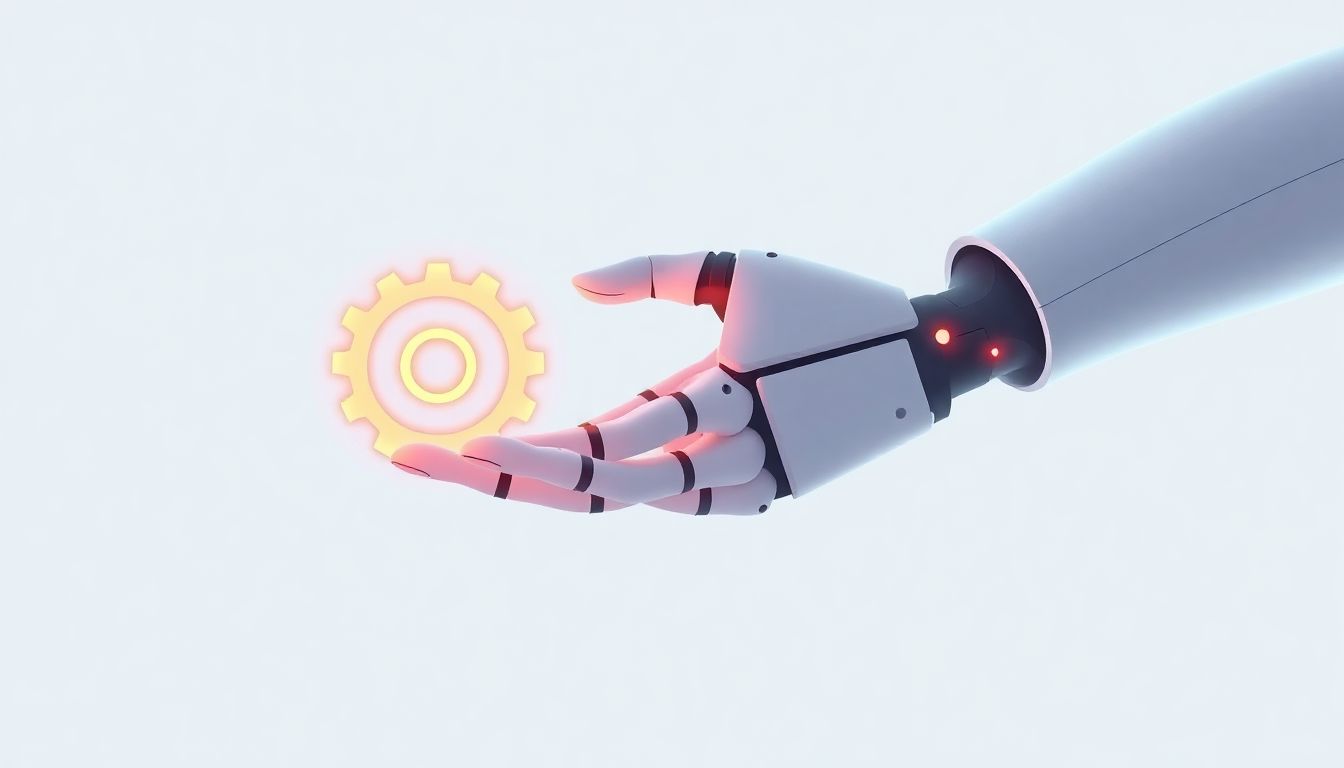You’re probably wondering which AI automation tools will be best in 2025 and how to choose the right one for you. Don’t worry, I’ve got you covered. Stick around, and you’ll learn simple tips and useful ideas to help make your tasks easier—whether you’re working or just trying to stay organized.
Keep reading, and you’ll discover the top tools, how to pick what suits you, and even some cool ways people are using AI automation in everyday life. Plus, I’ll give you a peek into what’s trending and why places like sellaitool.com could be just what you need to buy or sell these tools hassle-free.
Key Takeaways
Key Takeaways
- In 2025, top AI tools include OpenAI’s GPT-4, NVIDIA’s AI solutions, Shopify’s tools, and workflow automation platforms like Zapier and Automate.io, with the market growing fast.
- Choose the best AI tool by defining your goals, checking integration options, reading reviews, and testing free demos—consider how it saves you time and money.
- AI is used in business for chatbots and marketing, and personally for scheduling, home devices, and content creation, making everyday tasks easier.
- The job market is shifting towards roles in managing and developing AI; gaining skills in AI management and data analysis can boost your career.
- The AI market is huge and expanding rapidly, offering investment opportunities in areas like testing, finance, and healthcare, especially through niche solutions.
- AI testing tools are key for making sure AI systems work properly and avoid problems; investing in these helps prevent costly errors.
- Stay ahead by following AI trends, trying new tools, and building a network—good data practices are essential for effective AI use.

1. List the Best AI Automation Tools in 2025
In 2025, the AI automation landscape is booming, with tools that help both businesses and individuals save time and boost productivity. Some top players include OpenAI’s GPT-4 for natural language tasks, NVIDIA’s AI tools for automation in tech infrastructure, and Shopify’s AI solutions for e-commerce optimization. Additionally, tools like Zapier automate workflows by connecting thousands of apps, while Automate.io offers simple integrations for marketing and sales processes.
According to recent data, the AI software market generates around USD 100 billion annually and is expected to grow even more, reaching USD 126 billion by 2025. This expansion is driven by the rise of industry-specific AI solutions—from testing tools to predictive analytics—making it easier than ever to find a tool tailored to your needs.
2. How to Pick the Right AI Automation Solution for Your Needs
Choosing the best AI automation tool comes down to understanding what you need it to do. First, define your goal—whether it’s automating customer service, streamlining workflows, or analyzing data. Next, check if the tool integrates with your existing systems—no point in buying something that only works in a vacuum. Look for user reviews and case studies to see real-world results, and don’t forget to evaluate the support and community around the tool; helpful resources can save you a lot of headaches.
If you’re unsure, start small with a free trial or a demo version—most top tools offer these options. Also, consider the cost versus potential ROI. Remember, an AI tool might seem pricey upfront, but if it can save you hours every week, it pays for itself fast.
3. Use Cases for AI Automation in Business and Personal Tasks
AI automation isn’t just for big corporations anymore—it’s becoming part of everyday life. Businesses are using AI to handle customer inquiries with chatbots like Drift, automate marketing campaigns with tools like HubSpot, or even optimize supply chain logistics.
On the personal side, AI helps with managing schedules via smart assistants like Google Assistant, automating home devices, or curating personalized content on social media. For example, some freelancers use AI to automatically generate content ideas or schedule posts, saving lots of time and mental energy.
As AI tools continue to expand, expect more tailored solutions like AI-powered testing for developers and predictive analytics for investors—making tasks easier and more precise than ever before.

7. AI Automation and the Job Market in 2025
By 2025, around 97 million people are expected to be working in the AI space worldwide, indicating that AI is creating new roles even as some tasks become automated.
This doesn’t mean the job market will shrink—rather, roles are shifting towards managing, developing, and optimizing AI tools.
If you’re thinking about staying relevant, start learning skills related to AI management, data analysis, or AI ethics—these are becoming more valuable than ever.
Small businesses and startups are hiring AI specialists to streamline their processes, so consider acquiring a niche skill or certification to stand out.
For example, learning how to implement and troubleshoot AI solutions can open doors to new career paths or consulting gigs.
8. The Market Growth and Investment Opportunities in AI Automation
The broader AI market is valued at about USD 638 billion in 2025, with forecasts projecting it to grow to over USD 3.6 trillion by 2034.
This rapid growth means plenty of opportunities for investors and entrepreneurs who want a piece of the pie.
If you’re into startups, consider developing or investing in AI tools that fill gaps in niche markets like testing, finance, or healthcare—these areas are seeing the fastest growth.
Look out for emerging segments, such as AI-enabled testing tools, which are expected to see an annual growth rate of nearly 19% in 2025, reaching USD 686.7 million.
Starting small with a clear target niche, testing your ideas with real users, and then scaling can help you capitalize on this expansion.
9. The Role of AI Testing Tools and the Growing Market
AI testing tools are gaining momentum and are projected to be worth USD 686.7 million in 2025, up from previous years.
They help ensure AI systems work correctly, avoid bias, and comply with regulations, which is more important than ever as AI becomes more integrated into daily operations.
If you’re in software development or quality assurance, investing in AI testing solutions can save you from costly errors later on.
Start exploring options early—look into platforms like Test.ai that specialize in automated testing for AI applications.
Remember, implementing AI tests early in your development cycle helps catch issues before deployment, saving time and money.
10. How to Stay Ahead in AI Automation in 2025
Staying current means keeping an eye on emerging trends like personalized AI solutions and increased integration across platforms.
Follow industry leaders and attend conferences or webinars on AI advancements—many are free or low-cost online to track latest developments.
Try out new tools with free trials, experiment, and see what fits best with your workflows before making a big investment.
Build a network of contacts in the AI community—sharing experiences and best practices can help you adapt faster.
Finally, don’t ignore the importance of data—ensure your data collection and management practices comply with data privacy laws and support your AI goals.
FAQs
Leading AI automation tools in 2025 include platforms for customer service, data analysis, and workflow management, offering features like natural language processing, task automation, and integration capabilities for various business needs.
Identify your specific needs, evaluate available features, consider budget constraints, and check compatibility with existing systems to choose an AI automation tool that aligns with your goals efficiently.
AI automation is used for customer support, data processing, scheduling, personal assistants, marketing automation, and streamlining repetitive tasks, improving efficiency in both personal and business environments.
Using AI automation tools reduces manual effort, increases speed, enhances accuracy, supports data-driven decisions, and allows businesses and individuals to focus on more strategic tasks.